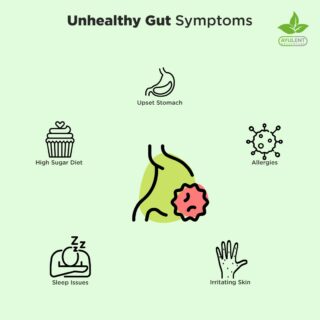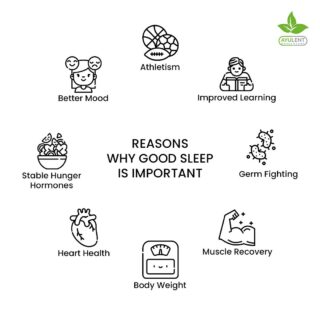
What is Gut Health? – How to Improve Gut Health and Avoid Gut Problems
By: Ayulent Healthcare
Gut health comes from an orchestrated balance of different micro-bacteria within the different parts of your gastrointestinal system. Parts of your digestive system, particularly micro bacteria, digest the food you eat. Additionally, they keep other harmful bacteria within your gut at bay from causing diseases. And so, striking the perfect balance in your gut’s microbiome is essential. If they’re not balanced, your gut ends up in a sorry state, and you’ll suffer through numerous health problems.
Experts often refer to the gut as a microbiome. It’s an amalgamation of different types of bacteria living within your esophagus, stomach, and intestines. The internal state of your gut depends on your environment, behavior, and the food you consume. Therefore, eating better or changing up your exercise plan can help you improve gut health.
What’s an Unhealthy Gut?
When examining a healthy person’s gut, experts have found that they have many different bacteria and microorganisms. On the other hand, when reviewing an unhealthy gut, they found an imbalance of specific disease-causing bacteria types. Therefore, to maintain a healthy gut, you should foster a microbiome that is balanced and diverse.
Taking inflammation as an example, bacteria present in your gut prevent inflammation and promote inflammation. Therefore, when these two types of bacteria stay in balance, you won’t have to deal with inflammation. As soon as there are an imbalance and the amount of inflammatory bacteria increases, you’ll start exhibiting inflammation symptoms.
Therefore, ideally, you want your helping and non-helping bacteria to be in equilibrium at all times.
Why is it Important to Maintain Proper Gut Health?
An unhealthy gut will eventually lead to a combination of different diseases. Specifically, poor gut health leads to heart disease, sclerosis, diabetes, and various cancer forms. Additionally, researchers link psychosis, depression, and schizophrenia with poor gut health. Therefore, maintaining good gut health is essential for both psychological and physical well-being.
What Affects your Gut Health?
The following things negatively impact your gut microbiome and gut health –
- Eating processed foods too often
- Eating foods with a very high amount of processed sugar
- Taking powerful antibiotics
- Not getting enough sleep
- Stressing yourself out
When you damage your gut health, you’ll see it will negatively impact your physical and mental health.
Symptoms of Poor Gut Health
These are the clear signs you should look out for as an indication of poor gut health –
- Abdominal pain
- Bloating and gastric pains
- Irregular bowel movements
- Blood in stool
- Severe vomiting or stomachaches
- Pain in the throat or esophagus
- Jaundice
When you start noticing these symptoms related to your gut health, consider improving your diet or consult with a physician to get the best recommendations. Often, you will find that, with a little exercise and a bit more care towards what you eat, and you’ll feel better in no time.
Therefore, once you notice these symptoms, start working towards improving your gut health to avoid long-term complications.
Conclusion
Now that you know the importance of good gut health and the signs you need to look out for, you can dive into taking better care of your gut health. Exercising often and adhering to a balanced diet leads to a healthy gut. Pay attention to what you eat, their amounts, and when you eat them to ensure your gut stays healthy.













































